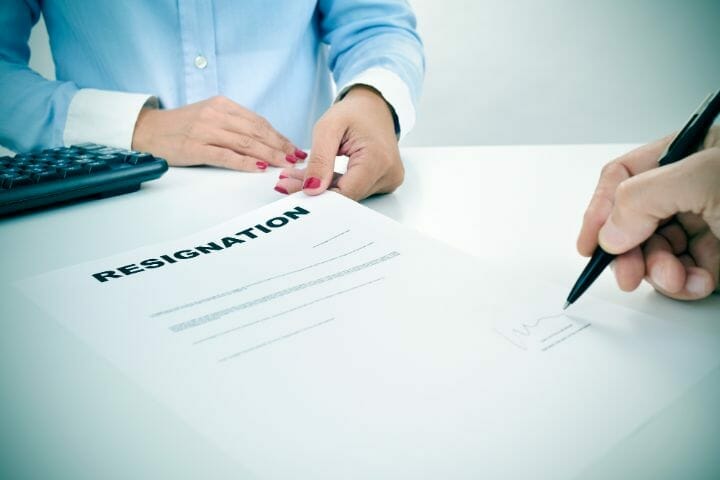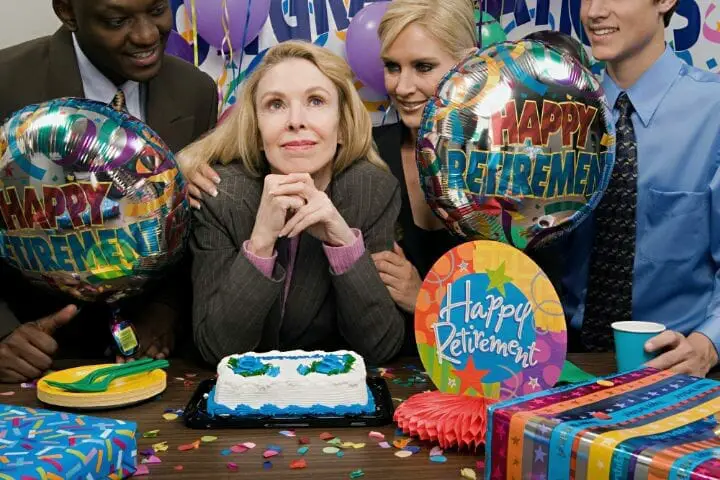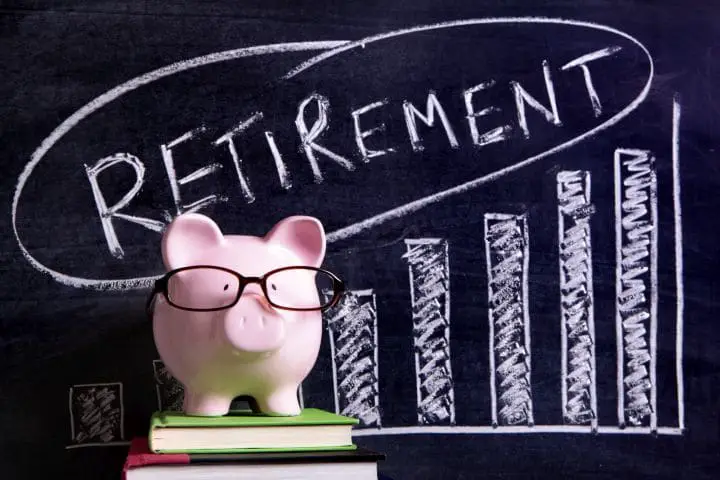You’ve spent your entire working years building towards this point: it’s time to retire and enjoy your time doing all of the things you have wanted to for years.
Did you know, though, that retiring isn’t the only option you have? When you get to an age where you’re starting to think about retirement, you have the options to either retire or resign. One choice might be better for your case, so how do you go about determining what’s right for you?
First, let’s look at the differences in these two terms and what they can mean for you.
Contents
Resigning
If you choose a from your position, it’s a relatively simple process. For most companies, you will need to write a , sign it, and hand it in to your . Most people give between two weeks to one month’s notice with their .
Sounds straightforward, right? Well, the process itself is simple enough, but there are a few things you should probably think about before deciding if this is right way to go for you.
What is it about resigning that is attractive to you? If you choose this option, can you still pay all of your monthly bills and live a comfortable life?
When you choose to resign from your position you likely won’t be eligible for any health insurance or any other social benefits you might have had when you were working.
If you think this might be the right path for you, it’s still a good idea to have a discussion with your financial advisor to make sure that, even with the drawbacks (like losing health insurance), you will have enough resources after resigning.
The important thing to remember is that resigning, even if you are eligible to retire, is exactly the same as quitting your job at any age. Thinking of it this way may help you determine if this is right for you.
Retiring
While retiring is technically another process to your , the process of getting there is a little different from simply from your position. Similar to , you will likely have to write a letter with your intent to so that you can make things official. You may also be asked to complete a formal . It is always good to give your organization some notice before you decide to , especially if you have been there for a reasonable period of time.
The big difference between and retiring is that often comes with benefits and insurance that you are entitled to as a former who has undergone the . These benefits might have a specified period of time they’re good for, or there could be a company that entitles you to some form of for as long as you’re alive.
Many people have saved up some money during their working years that they intend to use in their retirement years as their income. When you are at retirement age, this money will become available for you to use as you need to.
You might also like How Long Will One Million Dollars Last You In Retirement?
Should You Resign or Retire?
While both of these options involve quitting your job, there could be significant benefits that come with retiring as opposed to just resigning and that could determine which option you want to go with.
Most people, if they are of eligible age, choose to based on the benefits that it comes with. If you simply resign from your , even if you are of , you may not be eligible for or the you’ve worked for during your career.
That being said, there could be benefits to you retiring based on your unique situation. For this reason, it is recommended that you speak with your personal financial advisor to make sure you are making the right choices for your unique situation.
What if You Choose to Retire?
If you choose to retire, you will need to starting a retirement process that can potentially take months to complete. You will not be able to simply decide one day you are ready to retire that day – it takes planning to execute this.
There are a few things you will need to do to make sure you get the most out of your retirement.
Get Your Financial House in Order
Long before you decide to retire, you will want to make some important financial decisions as part of your retirement plan. Some of the questions you will need answers to are:
- What is your retirement nest egg? There have been people wanting to retire with very little money saved. Then, there are some folks who are good planners and have managed to stow away a large sum of savings for their retirement. Life after retirement can be very different in these two scenarios.
- It is quite likely that your earnings are going to reduce post-retirement. Do you plan to downsize? Do you plan to sell your house? Maybe buy a smaller car?
- Do you plan to live in the same city and community after retirement? Do you plan to move countries? Some of the popular countries where Americans like to retire are Canada, Mexico, and countries in South East Asia.
- While it might be a few decades away, it is a good time to also financially plan for things like home care costs, nursing home bills, and palliative care expenses. It is always good to be financially prudent and prepared rather than leaving family members to foot the bill.
You might also like Your Post-Retirement Housing Options
Announce Your Retirement
So you’ve made it! After years and years of hard work and good financial planning, you are ready to enjoy the fruits of your labour and head into your retirement years. There are a couple of things you will need to do in order to make your retirement official.
-
- Announce or talk to your boss about your plans to retire
- Write a letter, formalizing your intentions. This letter needs to be sent to your boss and a copy will need to go to your company’s Human Resources department.
Some people may want to make it public that they are ready to retire: they will likely be telling all of their friends, family, and co-workers, along with planning a big retirement party.
Other people will want to keep their plans quiet and celebrate in their own private way. However you decide to move forward with your retirement is completely up to you. The only part of this step you can’t skip is that you have to formally tell your boss and HR of your company that you have plans to retire.
What Goes in the Retirement Letter?
While the exact wording of your letter will be up to you, there is a basic structure you should follow to make sure it meets all requirements and clearly identifies your plans.
It’s important to note that this letter is not the time to reflect on your career with the company – you can do that at your retirement party (if you have one). You can add in a short thank you to show your gratitude to the company and their support of you, but it’s usually best to keep it short.
The letter needs to contain your personal information and the date you plan to retire at the very least. Try your very best to keep things positive in the letter, even if you aren’t feeling super positive when writing the letter. You can also include any items you will need support with from the company to help you transition into your retirement.
Now, the Fun Part: Preparing for Your Retirement
As many of us know, preparing for retirement starts years (potentially even decades) before you actually retire. Most of us will be saving and investing when we’re younger in anticipation of money we will need when we are no longer working.
When you get there, though, you will need to do some more preparations to get yourself ready for the transition to retired life. This part of the process involves talking to your financial advisor to make a plan for your financials during your retirement years.
You will need to determine the best course of action for how to access your investments and income and make sure you can pay your monthly bills and still live an enjoyable life.
Once you have worked out your finances, it’s time to look at the other parts of retiring. For some people, this part can be very overwhelming. We’ve spent the majority of our life at work and building our career, so what do we do now that we have all this free time?
If your spouse isn’t retiring yet this might become an odd time in your relationship, so you may want to work out those details and potentially get used to some new routines.
Do you have bucket list of things you’ve always wanted to do but never had the time for? Now might be your opportunity to explore the hobbies and experiences you’ve always wanted to do!
You might also like How to Get Into Assisted Living With No Money
Working After Retiring
Though this may sound odd, working after retirement is not all that uncommon. Many people who retire are still healthy, and may choose to take up part-time work during their retirement. You can also volunteer after retirement.
Taking up a post-retirement job might not happen right away, as many people like to enjoy the first few months to relax. However, after this period, some folks might pick up casual or part-time work somewhat related to their former field of work. Given the proliferation of the internet, the gig economy, and the acceptance of working from home, there are quite a few easy work-from-home jobs for seniors.
If you have decided to retire due to a physical disability or a surgery like a knee replacement, you can still find work that is more suited to your pace and abilities. Given the emphasis on inclusive employment, it is also easier now to find jobs for wheelchair users and even quadriplegics.
Working post-retirement can help supplement your income, so you don’t have to use as much of your savings right away. Or it might just give you something to occupy your time.
Parting Words – Advantage or
Whether you completely retire or take up casual work, the choice is yours! You can decide how to spend your golden years in the way you’ve always dreamed of.
The idea of retiring can be very overwhelming, even though it’s something many of us spend a lot of our working years saving for. The idea of retirement can be a vague concept we keep working towards but aren’t really sure how to handle when we get there.
Making a is paramount to make sure this transition is smooth and you’re able to enjoy these years as much as possible! One of the parts of this plan is to make sure your finances are in order, and this comes from working with your financial advisor. The other part is how you’ll emotionally adjust to your life of .
Give yourself credit for getting here and enjoy your time: travel, spend time with your friends and family, and finally check off all those items on your bucket list!






